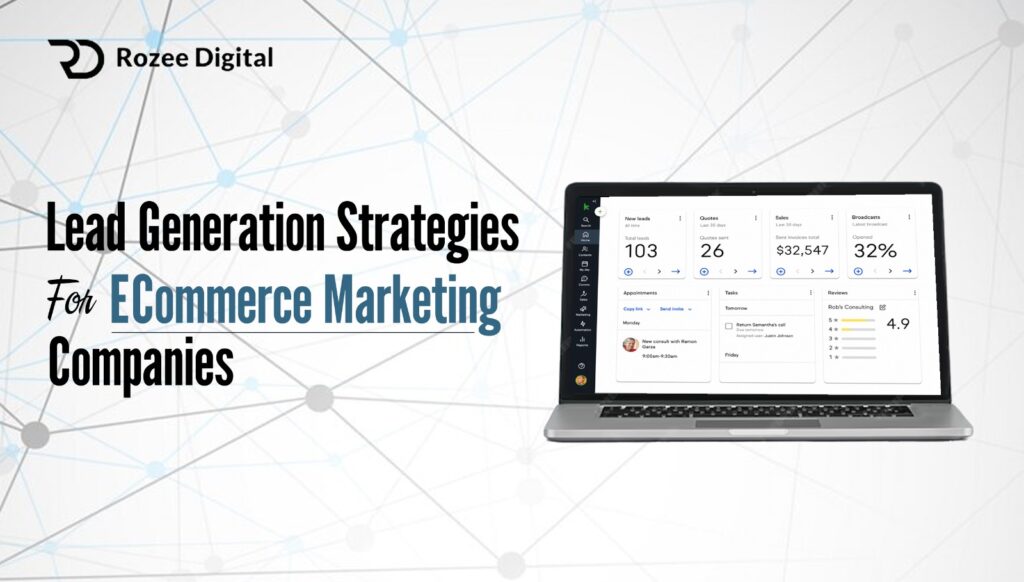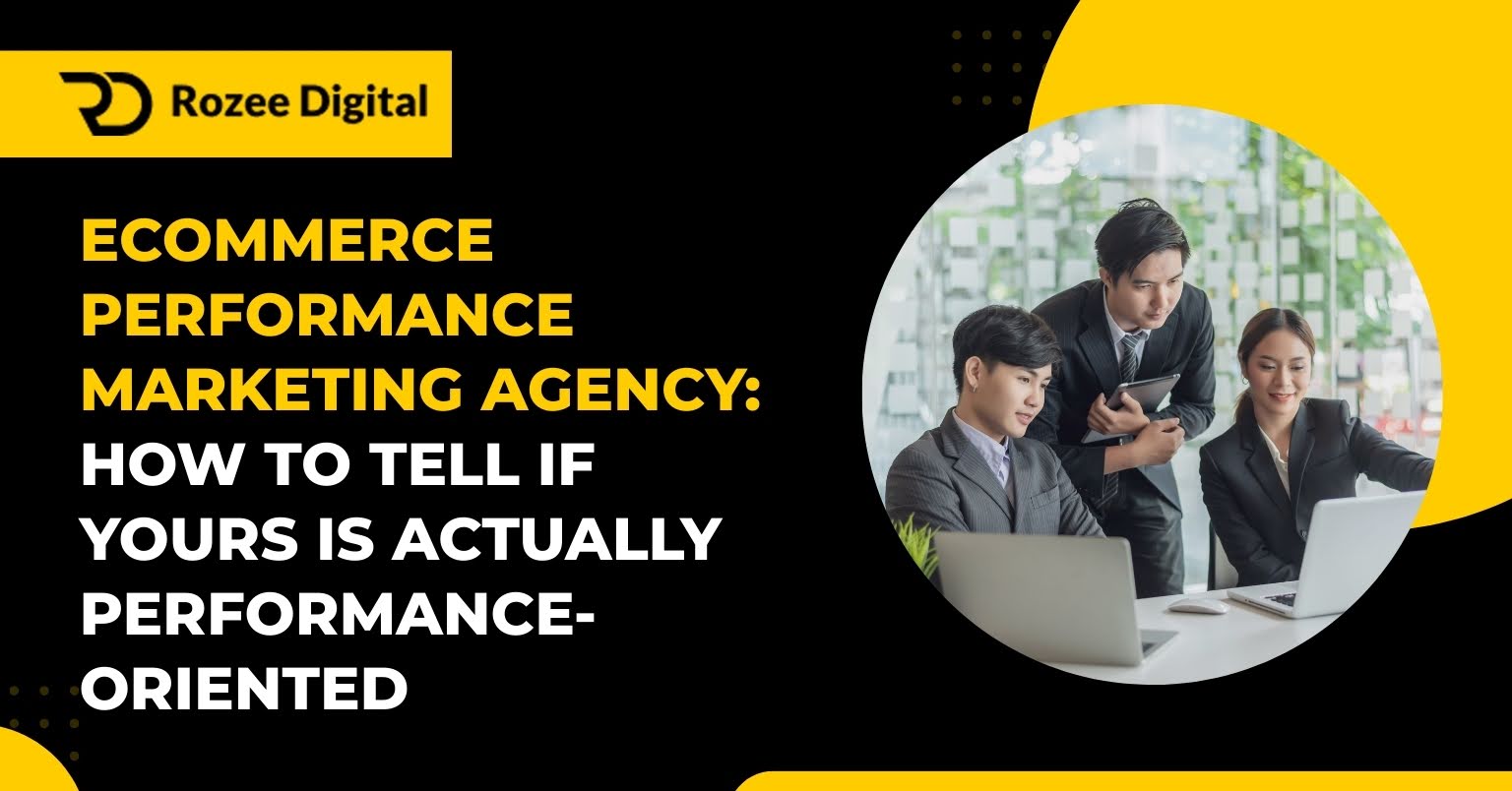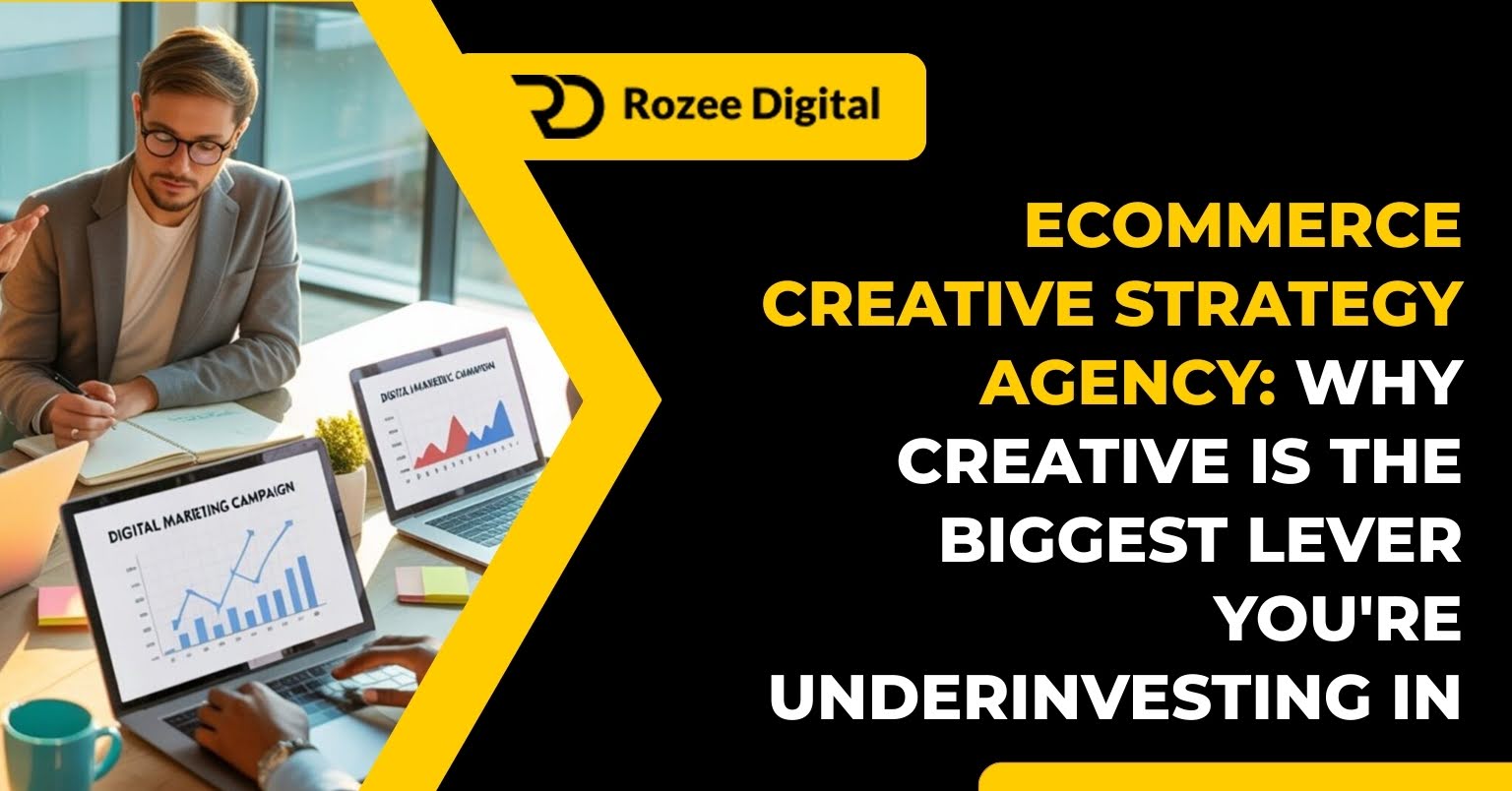Are you fed up with waiting for clients to come to you? Need a good lead generation strategy? So don’t worry, this blog post is exactly what you need.
Keep scrolling down and discover explosive growth with powerful lead-generation strategies and tactics that marketing companies can employ to ensure their marketing lead-generation efforts are both efficient and effective!
However, in today’s dynamic world of e-commerce marketing, standing out from the crowd and attracting high-quality clients is important for success. But just waiting for them to come to you might not be enough. This is where proactive lead generation comes in, helping to find new clients and make your business grow.
Understanding Lead generation
Lead generation is the process of attracting potential customers (prospects), capturing their lead contact information, and increasing their interest in your products or services with the ultimate goal of converting them into paying customers. It is an important aspect of any successful sales process.
Here’s a breakdown of the key aspects:
Leads: These are individuals who have shown some level of interest in what you offer. This could be by downloading a white paper, attending a webinar, signing up for a free trial, or simply providing their contact information.
Nurturing: Once you have a lead’s contact information, the goal is to nurture the relationship by providing them with valuable information and resources that address their specific needs and challenges. This helps move them further along the sales funnel.
Conversion: Ultimately, the goal of lead generation is to convert these potential customers into paying customers. This can happen through various methods, such as sales calls, email marketing, or targeted advertising.
Lead Generation Marketing in E-Commerce
In the context of e-commerce, lead generation marketing involves creating interest among potential buyers through a variety of strategies and channels, ensuring a steady influx of business lead generation.
The significance of lead generation marketing cannot be overstated; it serves as the lifeline for e-commerce companies, directly impacting their ability to generate sales and sustain growth. Leads marketing also focuses on campaigns aimed at engaging these potential customers, nurturing their interest, and guiding them along the sales funnel toward making a purchase.
Key benefits
Effective lead-generation marketing not only fills the sales funnel with qualified leads but also enhances brand visibility and authority in a crowded digital marketplace. Here are a few key benefits of effective lead generation for your business growth:
- Increased brand awareness: By creating valuable content and engaging with potential customers, you can increase brand awareness and establish yourself as a thought leader in your industry.
- Improved sales pipeline: A well-defined lead generation strategy helps you build a steady stream of qualified leads, ultimately leading to a stronger sales pipeline.
- Higher conversion rates: By nurturing leads and providing them with relevant information, you can increase the likelihood of converting them into paying customers.
Two main methods: Marketing Lead Generation vs. Digital Marketing for Lead Generation
Definitions
“Marketing lead generation encompasses a broad range of activities aimed at attracting leads through various channels, both offline and online. It focuses on casting a wide net to reach a broad audience and generate interest in a company’s products or services.”
“Digital marketing for lead generation specifically focuses on using online channels and tactics to attract and convert leads. It leverages digital platforms and online advertising to target specific demographics with precision and drive them toward conversion.”
Differences
The primary difference lies in the channels and methodologies employed.
| Marketing Lead Generation Approach | Traditional Approach | Digital Approach |
|---|---|---|
| Targeting | Less targeted | Highly targeted |
| Strategies | Targets both offline and online strategies (including networking events, direct mail, and print advertising) | Targets specific demographics with precision (utilizing online channels such as social media, email marketing, SEO, and online advertising) |
| Goal | Aimed at generating interest | Aimed at attracting and converting leads |
Connections and Synergy
Despite their differences, both methods are interconnected in today’s digital age, allowing insights from digital efforts to inform broader marketing strategies.
By combining the advantages of both traditional and digital methods, companies can optimize their lead generation efforts for maximum impact and efficiency in generating high-quality leads.
Effective Lead Generation Strategies for Growth
Effective Lead generation strategies are important to adopt as they are the path towards successful growth of your business
Strategy # 1 Utilize content marketing
To attract potential customers and gain their interest, content marketing plays a vital role in lead generation. Create valuable content like, publish informative blog posts, case studies, white papers, or infographics that address your target audience’s pain points and showcase your expertise.
The second most important thing is SEO optimization. Optimize your content for relevant keywords to improve search engine ranking and ensure organic discovery by potential clients searching for solutions. Also, focus on multi-channel distribution. Share your content across various platforms like your website, social media, and industry publications to reach a wider audience.
Strategy # 2 Optimize your website for conversions
A well-designed landing page can greatly influence the success of lead generation efforts. When directing visitors to a landing page, it’s important to make sure the page is optimized to maximize conversions.
Create dedicated landing pages optimized for lead generation with a clean and visually appealing design. Include clear calls to action, valuable content offers, and user-friendly forms to capture leads.
To improve landing page conversions, try A/B testing various elements like headlines, images, or form fields to find what works best for your audience. For example, an e-commerce store could create a landing page for a new skincare product launch, showcasing its benefits and offering an exclusive discount code for sign-ups.
Also, ensure that your website is mobile-friendly, easy to navigate, and visually appealing. Make sure contact information is readily available for easy communication.
Keep in mind, utilize retargeting ads to reach website visitors who haven’t taken a desired action, prompting them to revisit your site or download valuable resources.
Strategy # 3 Leverage the Power of Social Media
To effectively expand your online presence and attract potential clients, it’s essential to engage actively across various platforms frequented by your target audience. By sharing valuable content, participating in relevant discussions, and building relationships with potential clients, you can establish credibility and trust.
Additionally, leveraging paid advertising, such as targeted social media ads, can help broaden your audience reach and drive traffic to your website or landing pages, further enhancing your visibility and potential for conversions.
Furthermore, hosting engaging live streaming sessions to discuss industry trends, address audience questions, and showcase your expertise in real time can provide valuable opportunities to connect with your audience on a deeper level, ultimately fostering stronger relationships and driving business growth.
Strategy # 4 Make Email Marketing Work for You
To maximize your email marketing efforts, start by building an email list by offering valuable incentives such as resources, discounts, or webinar access in exchange for email addresses. Ensure transparency and compliance with best practices in your opt-in process.
Next, segment your email list based on demographics, interests, or purchase history to tailor your email communication and boost engagement. Finally, nurture leads through the sales funnel using targeted email marketing campaigns that provide valuable content, educational resources, and personalized offers, ultimately guiding them toward conversion.
Strategy no: 5 Explore Advanced Lead Generation Strategies
Incentivize existing clients to refer their network through personalized referral programs, expanding your reach through word-of-mouth marketing. Consider collaborating with complementary businesses in your industry to cross-promote services and reach new audiences.
Also, host interactive webinars or online events showcasing your expertise and attracting high-quality leads interested in the topics you present.
Best Practices for Lead Generation
Sure, here’s the information presented in a table format:
| Strategy | Description |
|---|---|
| Define Target Audience | Clearly define who your target audience is, understanding their challenges and requirements. |
| Test and Refine Lead Generation Tactics | Continuously test and refine lead generation tactics to improve outcomes. |
| Customize Communication for Leads | Categorize leads and adjust communication accordingly to personalize the approach. |
| Employ Marketing Automation Tools | Utilize marketing automation tools to simplify lead nurturing and follow-up processes. |
| Track and Analyze Performance | Monitor lead generation advertising performance through analytics and refine strategies. |
| Provide Value Before Asking | Offer value to potential leads before asking for anything in return to build trust. |
| Optimize Conversion Elements | Ensure clear CTAs, simplified forms, and compelling landing pages to maximize conversions. |
| Tailor Messaging and Offers | Customize messaging and offers based on specific audience segments for increased relevance. |
| Leverage Social Proofing | Use testimonials, case studies, and reviews to demonstrate the value of your offering. |
Conclusion
A strong lead generation strategy is the cornerstone of any successful e-commerce business, enabling companies to navigate the complex landscape of lead generation digital marketing.
Lead generation marketing is all about attracting potential clients interested in your e-commerce marketing services, nurturing relationships with them, and converting them into paying clients.
By adopting the Lead generation tactics and strategies discussed, and adhering to the best practices for lead generation, businesses can build a robust pipeline of leads, driving growth and ensuring long-term success. We encourage e-commerce marketing companies to embrace these approaches, continuously refine their strategies, and remain committed to delivering value to both potential and existing customers.





